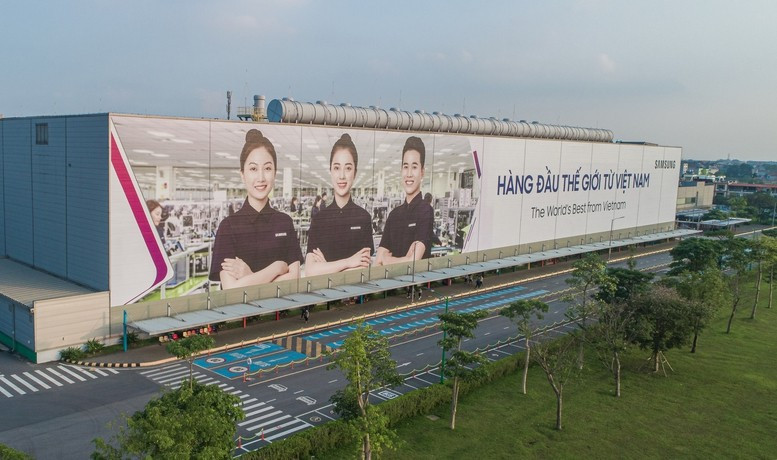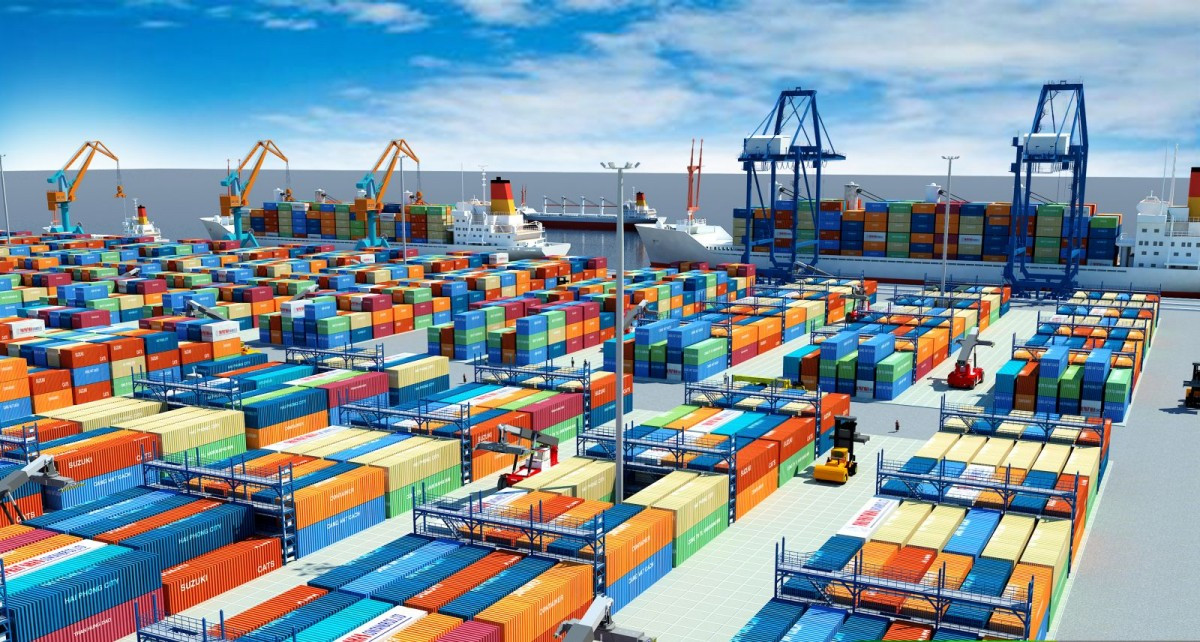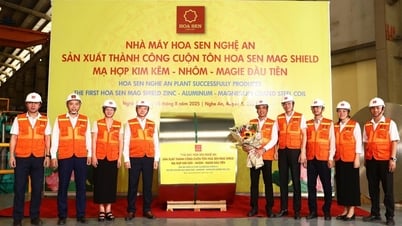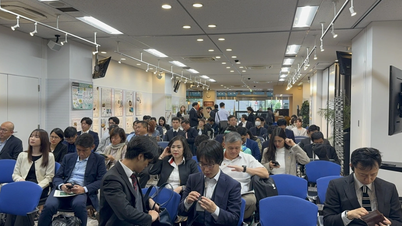According to the South China Morning Post, factories in Vietnam have made impressive strides since 2018 in the high-tech sector.
Strong strides in manufacturing
According to the South China Morning Post, in recent years, Vietnam manufacturing industry has made great strides, affirming its new position in the global supply chain. If in the past, Vietnam was mainly known as a country exporting agricultural products, furniture and garments, now the domestic manufacturing industry is rising with the strong emergence of high-tech industries such as electronics, electric vehicles... This development has attracted the attention of many multinational corporations, creating a new wave of investment in Vietnam.
One of the clearest examples of this progress is the electronics industry. Samsung Group, one of the world’s leading phone manufacturers, has set up large factories in Vietnam, producing millions of smartphones each year. According to analysts, the quality of Samsung products in Vietnam is not inferior to those produced in other countries, especially in terms of quality standards.
Mr. Lam Nguyen - Research Director at IDC Indochina - said that the quality of a Samsung phone made in Vietnam is certainly on par with that of a product made in other countries. This proves that Vietnam has been able to meet the strict production standards of large corporations, thereby affirming its production capacity.

Vietnam has also recorded remarkable growth in other industries. The Vietnamese furniture industry stands out with its complete production ecosystem and low raw material costs, especially domestic wood. This has helped Vietnam become an attractive destination for international companies such as Ikea.
Vietnam's agricultural industry, with prominent products such as coffee and cashew nuts, has also made great strides, not only dominating the domestic market but also reaching out to the world.
Vietnamese coffee, with its increasingly improved quality, has established a solid position in the hearts of global consumers.
In addition, Vietnam’s footwear and apparel industries have built a reputation for competitive prices and efficient manufacturing processes. Major brands such as Nike and Patagonia now place orders with Vietnamese factories, demonstrating that the country’s manufacturing capabilities go beyond low-cost products to meet high quality requirements.
Challenges and opportunities for the future of Vietnam's manufacturing industry
Despite its remarkable achievements, Vietnam’s manufacturing sector still faces a number of major challenges in its quest to become a high-end manufacturing hub. While Vietnam’s electronics products have achieved good quality, analysts point out that there is still a gap compared to countries with strengths in electronics manufacturing, especially in terms of quality control and consistency.
According to Alberto Vettoretti, a manager at business consulting firm Dezan Shira & Associates, Vietnam faces a major challenge in improving quality control for high-end products. " Inconsistent quality can affect the reliability and durability of some products, making Vietnam less competitive compared to leading countries in the electronics manufacturing industry ," said Vettoretti.

To solve this problem, Vietnamese enterprises need to continue investing in production technology, while improving quality control processes to ensure products meet international standards.
In addition, Vietnam also faces challenges in maintaining stable supply chains and improving infrastructure. logistics. During peak periods, the transportation of goods can be difficult and unstable, affecting production progress and supply capacity. To solve this problem, Vietnam needs to increase investment in infrastructure and improve the logistics system, facilitating the transportation of goods both domestically and internationally.
Another important factor is the training of skilled workers. Although Vietnam is gradually shifting to high value-added manufacturing, the supply of skilled workers remains a limiting factor. Companies need more engineers, technicians and skilled workers to meet the demands of high-tech industries.
" Vietnam needs to train more skilled workers if it wants to quickly become a high-end manufacturing center ," said Zach Herbers, CEO of Herbers Agency in Ho Chi Minh City.
However, Vietnam is well-positioned to seize the opportunities in manufacturing. Improvements in product quality, price competitiveness and improved manufacturing standards will continue to attract more foreign investors and expand its export markets. If these challenges are addressed, Vietnam could become one of the regional and global hubs for high-quality manufacturing in the near future.
Source























![[Photo] Nghe An: Provincial Road 543D seriously eroded due to floods](https://vphoto.vietnam.vn/thumb/1200x675/vietnam/resource/IMAGE/2025/8/5/5759d3837c26428799f6d929fa274493)





![[Photo] Discover the "wonder" under the sea of Gia Lai](https://vphoto.vietnam.vn/thumb/1200x675/vietnam/resource/IMAGE/2025/8/6/befd4a58bb1245419e86ebe353525f97)



































































Comment (0)